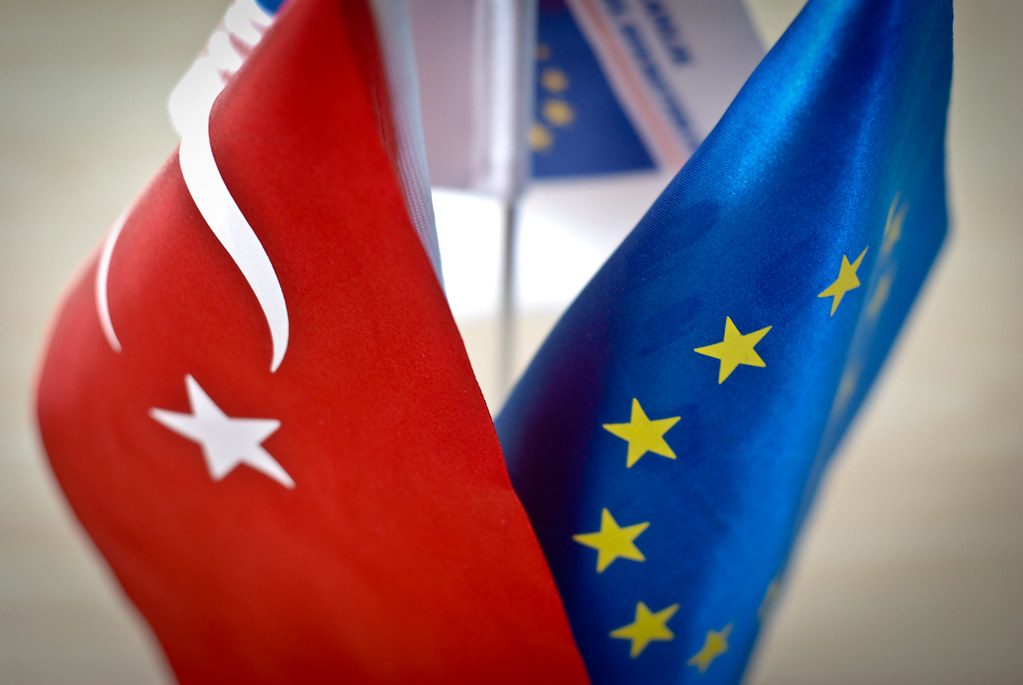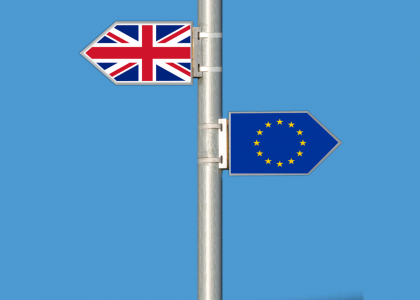In recent years Turkey has shown itself not to be the friendly neighbour many in Europe had hoped for. Growing tensions and geopolitical rivalry between Turkey and the EU have exposed fissures within the bloc – and threaten Ankara’s relationship with it.
Amongst the multiple crises the European Union (EU) has faced over the last decade, Brussels now has to contend with a diplomatic row involving a number of member-states and Turkey, a NATO ally and long-time prospective EU candidate.
The summer of 2020 saw tensions spiral in the Eastern Mediterranean. The region has always been a hotbed of tension shaped for the most part by the icy rivalry between Turkey and Greece. In the last few years, huge offshore gas reserves have been discovered in the region, and both countries aim to capitalise on it. In 2019 Turkey established an Economic Exclusion Zone (EEZ) that encroached on Greek waters, who in response established a conflicting EEZ. Tensions escalated in August 2020 after incursions from Turkish and Greek naval ships, with both countries now conducting rival naval exercises.
Cyprus has found itself in the centre of the fray. Historically, tensions between Turkey and the Mediterranean-based EU member-state have been frosty as a result of Ankara’s recognition and de facto control of the ethnically Turkish Northern Cyprus, which split from the ethnically Greek south in 1974. Turkish energy ambitions in their coastal waters will only intensify distrust.
The already troubled relationship between Ankara and Paris deteriorated further in 2020 after French president Emmanuel Macron’s defence of free speech relating to cartoons of the Prophet Muhammed. Turkish president Recep Tayyip Erdogan accused the French of an anti-Islam agenda, further stoking tensions between the French government and its large Muslim population. It is far from the first time the two countries have been at each other’s throats. But this most recent Franco-Turkish cultural spat comes after the development of increasingly hostile strategic moves abroad, as both countries found themselves on opposing sides in proxy wars in Libya and Syria. Turkish support for the GNA in Libya was particularly disconcerting for Paris as it posed a direct challenge to France’s prominent military and economic presence in North Africa, tipping the balance of power in the region against their favour. In June, a new diplomatic crisis drew anger from Germany and Spain against Turkey as the French navy attempted to inspect a Turkish-protected cargo transport on its way to Libya, suspected of violating a UN arms embargo imposed on the war-torn country.
Sour relations between Turkey and the EU member states have taken an even uglier turn over the course of last year. But it is not the first time in recent years that Erdogan’s government has been at loggerhead with the EU. He has previously threatened to break the 2016 EU-Turkey deal to stem migration to Europe and instead ‘open the gates’, releasing millions of Syrian refugees currently residing in Turkey into Europe.
Brussels has had its hands tied in its response to the crisis. The EU has backed its own member-states in the stand-off, but differences remain on what kind of response it ought to take. Both Greece and Cyprus, as the targets of Turkey’s aggression, advocate for a confrontational stance. France also seeks active confrontation, not only because of deteriorating relations between the two countries, but also because it suits their own geopolitical aims. Paris has long seen itself a potential leader of a more coherent and independent European foreign policy which includes securing its own Mediterranean backyard.
Other Mediterranean states seek a more compromising solution. As a result of being more vulnerable to financial and energy insecurity in the region, Italy, Spain and Malta try to balance support for their fellow EU member-states and maintaining good bilateral relations with Turkey. On the other end of the spectrum, Germany’s strong economic and demographic ties with Turkey means Berlin leads the calls for de-escalation and mediation, joined by many Eastern European member-states whose national security interests are vested heavily in the strength and unity of NATO and Turkey’s position of strength in the region.
Disagreements between member-states on how to respond leaves the EU in a difficult situation, but the crisis highlights another fundamental flaw with EU foreign policy – it has no real hard power to put on the table in a situation like this. National foreign policies, military capabilities and diplomatic power still remain in the hands of its member-states. The European External Action Service (EEAS), Brussels’ own diplomatic service, is at this stage largely symbolic. As a result, when tensions boil to the level of military confrontation, the EU can seem out of its depth. Its decentralised and intergovernmental nature on foreign affairs means that stark divisions between member-states can ultimately result in indecision and weakness in circumstances like these.
That is not to say the EU is completely powerless. It still wields huge economic power, one that Turkey is particularly vulnerable to, considering Turkey’s current economic situation and its heavy reliance on European markets for its own economic growth. At the EU summit on December 10 2020, the EU introduced new sanctions on Turkey, an agreement that led to disappointment from those countries looking for a more confrontational stance.
The ongoing crisis adds further complications to the question of Turkey’s accession to the bloc, something that has for a long time looked unobtainable. Conditions required for EU membership include the existence of stable institutions that allow for democracy, the rule of law and protection of human rights. In recent years Erdogan’s AKP government has increasingly undermined Turkey’s already fragile democratic system. Combine this with Turkey’s woeful record on press freedom and its poor treatment of the Kurds and other minorities, and it is hard to see how it could ever be admitted to the club as a EU-aligned liberal democracy.
By December, Turkey had appeared to soften its position ahead of the EU summit. Turkey’s position in the Customs Union and its heavy reliance on trade with the EU has meant that further antagonism is not a realistic possibility. Furthermore, newly elected President Biden’s more pro-EU foreign policy and low tolerance of ‘Strongman’ styles of international politics has almost certainly contributed to the softening of Turkey’s position.
While this de-escalation should be welcomed, it does not amount to a U-turn for Turkey. Ankara’s claims in the Eastern Mediterranean remain, and so do the multiple tensions with its European neighbours. As the prospect of full EU membership looks more and more like a pipe dream for Turkey, it is clear Ankara sees a confrontational approach as the only way to assert Turkey’s international interests. The question over what type of response Europe should adopt remains highly problematic, highlighting fundamental differences in foreign policy approaches of individual EU member-states. If the EU truly wants to create a more comprehensive pan-European foreign policy in the future, such stark differences in existing national interests will not be so easily overcome.
Dan Buckley is a second-year History and Politics student at the University of East Anglia. This blog was written as part of the course work for the Introduction to the European Union module, organised by Pierre Bocquillon.





